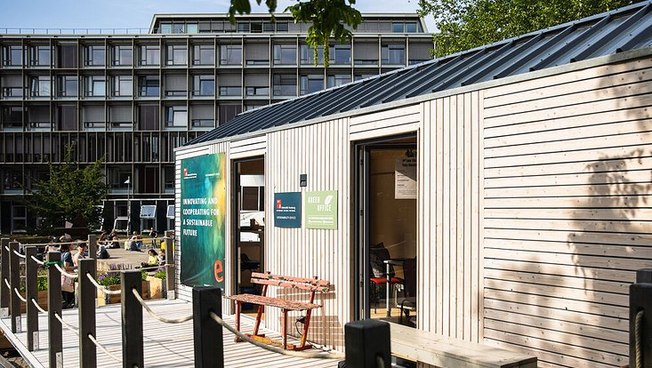6 December 2023
International ranking in the field of sustainabilityUniversität Hamburg Manages Third Place in Germany in QS Sustainability Rankings 2024

Photo: UHH/Esfandiari
Competing against 48 other institutions, Universität Hamburg secured third place in Germany. A particular highlight was the University’s outstanding performance in the categories of “Impact of Education” and “Environmental Sustainability,” where it placed second in Germany. This result reflects the University’s commitment not only to sharing knowledge but also to exerting a positive impact on society.
At the European level, Universität Hamburg managed forty-second place among 493 participating institutions. Worldwide, the University secured ninety-first place among 1,403 institutions. This global recognition mirrors Universität Hamburg’s dedicated efforts to taking on a key role in the field of sustainability not only at the local and regional levels but also at the international level.
Prof. Dr. Hauke Heekeren, president of Universität Hamburg: “Universität Hamburg has positioned itself a university of sustainability and thus places a clear focus on ecological, social, and economic responsibility. The University’s positions in the QS Sustainability Rankings are recognition of our efforts to establish sustainability not only as a concept but rather as an integral part of our research, teaching, and university life. We are proud that Universität Hamburg has been recognized as one of the leading universities in the field of sustainable development and will continue to spare no effort in contributing to a sustainable future.”
Prof. Dr. Laura Marie Edinger-Schons, chief sustainability officer (CSO): “That is a great success! Our rankings motivate us as a university to further intensify our measures in the area of sustainability and to continue on our path. “As a university, we can contribute in many ways to sustainable development. Universität Hamburg focuses on sustainable development in all fields and establishes new benchmarks in the training of students and the generation of knowledge for a sustainable future.”
